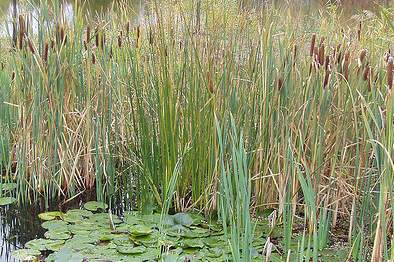The study complements UNDP project “Integration of principles and methods of ecological management of Eastern Slovakia Lowlands” and especially Black Water River Basin Management Plan.
There are 28 small villages (bellow 2,000 inhabitants) with 11,589 people in the area which was in the past heavily drained to support agriculture production and prevent flooding. Main water course is Black Water a tributary to the Uh River, flowing from one of the largest water reservoirs in the country, Zemplínska Šírava.
In terms of economic and social development, Eastern Slovakia is not reaching 50% of EU average in GDP per capita and unemployment rate in Michalove District was more than 23% (June 2011 data).
Nature Reserve Senianske Ponds, situated in the middle of the study area, was founded in 1955 to protect water fowl and unique water plants. It is also international wetland site under Ramsaar Convention and a part of EU wide network of protected areas NATURA 2000.
Alternative waste water treatment plants are various reed bed, soil and sand filters, willow fields and other natural methods of cleaning waste water from households and especially nutrients. In reality, these are rarely used due to low awareness, legislation and permitting obstacles.
Depending on local conditions, they can have lower construction and operational costs in comparison with traditional biological activation systems.
However, they require quite large areas for fast growing plants used to clean up waste water. It is a good solution for small compact settlements with very short collection system (pipes) which are the most expensive part of the waster water treatment system.
Expert team comprising Igor Bodik from Technical University in Bratislava, Elena Fatulova, water management consultant and Milan Matuska, GWP Central and Eastern Europe short-listed seven villages (Blatná Polianka, Blatné Remety, Bunkovce, Senné, Stretava, Stretávka and Veľké Revištia) where alternative plant is feasible from technical and economic point of view.
Next step would be to secure funding for pilot plant to demonstrate feasibility of the technology.
GWP CEE has been working on sustainable sanitation since 2007 and since then facilitated several regional and local initiates to advance alternative waste water treatment for the benefit of the people and nature.
For more information, please contact GWP Slovakia.
